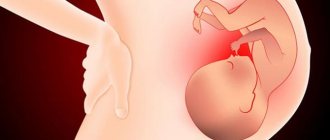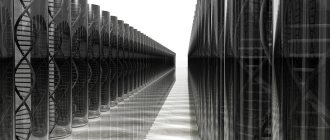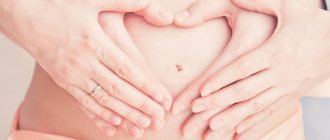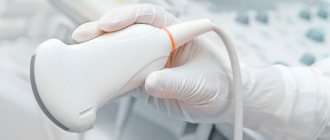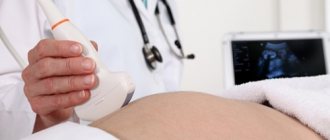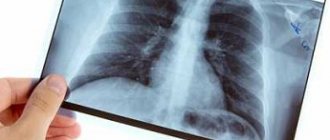During pregnancy, the female body performs almost double work, therefore, the load also increases significantly. This is why it is so important to monitor the girl’s health. One of the most convenient ways to do this is a urine test. This physiological fluid literally immediately reflects the changes occurring in the body, and therefore allows you to promptly detect problems and begin to eliminate them. One of them is the formation of salt crystals in urine.
What is the rate of salts in the analysis?
A separate analysis of the presence of salts in urine is rarely prescribed, so their amount is determined during a general urine test. Sometimes the doctor prescribes collecting a daily urine sample for salts. This allows you to avoid the factor of chance - for example, a jump in the amount of salts associated with diet or increased physical activity. During the analysis, microscopy of the colored sample is performed, during which the doctor can examine the crystals of the secreted salts of various shapes. The appearance of these particles is determined by which salts form them.
During pregnancy, the norm is a decrease in the concentration of salts in urine. This is due to the fact that a developing fetus needs a lot of salt, which acts as a building material: it participates in the formation of the skeleton of the unborn baby. If a cloudy sediment is detected in the urine, this indicates a high concentration of salts, leukocytes, bacteria or biological secretions in this liquid. In order to accurately establish the reasons for the appearance of sediment, additional analysis is prescribed.
Kinds
The detection of oxalates during pregnancy often indicates pathological processes occurring in a woman’s body that affect the urinary system. The condition is dangerous because it practically does not manifest itself symptomatically, therefore it is detected only on the basis of a urine test and the results of instrumental examinations (ultrasound).
Several types of oxalates are commonly found in urine, each formed from salts of different types of substances. The most common are calcium oxalates, but concretions of crystallized potassium, ammonium and sodium salts combined with oxalic acid are also released. The formation of such stones is influenced by various factors - from improper diet to an excess of vitamins taken.
Recommended topic:
Stones in the ureter
Reasons for the increase in salts during pregnancy
There are several main culprits for the increase in salt concentrations in urine during pregnancy. The first reason is simple dehydration. It can be caused by too much physical activity, hot weather, low fluid intake, diarrhea, and vomiting. An increase in the concentration of salts in the urine occurs due to the fact that the volume of liquid in which they dissolve decreases.
The next reason is considered to be an incorrectly selected menu. The food we eat affects the pH of our urine and can also shift the acid-base balance. Girls who eat exclusively meat products or adhere to a strict vegetarian diet are almost guaranteed to find salt sediment in their urine.
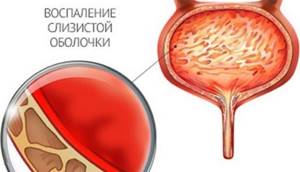
Cystitis
Any inflammatory process occurring in the bladder or kidneys will cause the noticeable appearance of salt crystals in the urine during pregnancy. It is very easy to answer the question why the amount of salts increases during the development of infection, and what this means: this is due to the fact that urine becomes more alkaline. This state of the body is accompanied by the detection of proteins, mucus, bacteria, red blood cells and white blood cells in the urine.
Recommended topic:
E. coli in urine
In addition, during pregnancy, any disease that develops in the body of the expectant mother takes on a more pronounced form. If the living conditions of an adult woman in a pregnant position are poor, constant stress is added to the symptoms, which, coupled with a drop in immunity, affects the more active course of illnesses.
Treatment
In most cases, treatment takes place on an outpatient basis.
A pregnant woman is sent to a hospital only in case of acute health problems that entail a danger to the development and life of the child. If the amount of oxolates in the urine is not greatly exceeded, then treatment recommendations include adherence to dietary table No. 7, as well as the drinking regime.
A special place in oxolate therapy is occupied by regular physical activity. Moderate exercise helps their movement from the kidneys and removal from the body of the expectant mother.
In severe cases, drug therapy or surgery using laparoscopy is prescribed.
Oxalates and phosphates in urine

Phosphates in urine
Phosphates are formed in the body with the help of calcium. Typically, an increase in their concentration in urine is recorded during pregnancy or with certain infectious diseases. In the first case, acid salts are used to form the baby's skeleton, and excess calcium is excreted in the urine - this condition is called phosphaturia. Also, an increase in phosphate concentration is affected by dehydration caused by various factors. A large amount of such salts in the urine early or late (for example, in the last trimester) can be a sign of rapid growth of phosphate kidney stones - in this case, additional diagnostics are necessary to avoid serious consequences.
Oxalic acid salts become the material for the formation of oxalates. An increase in their concentration in urine is called oxaluria. In some cases, such salts also begin to form stones - the reasons for this are: magnesium or vitamin B6 deficiency, small intestinal dysfunction and Crohn's disease. The detection of oxalates in the analysis is often associated with the fact that the urine becomes acidic - this often happens after eating acidic foods or vitamins.
Why are kidney stones dangerous for the fetus and for the woman?
If inflammation occurs in the kidneys, it must be removed. It can give unpleasant complications in the form of:
- disturbances in the blood supply to the fetus;
- oxygen starvation of the fetus;
- premature birth.
The thing is that when a stone moves or an organ becomes inflamed, renal colic occurs. Doctors believe that this is one of the most painful conditions that a person experiences. Renal colic is so unpleasant that it causes quite a strong spasm in the pregnant woman’s body. But it can also be caused by any of the above consequences.
Urolithiasis is also dangerous because its attacks are quite difficult to stop during pregnancy. A pregnant woman is not treated with strong medications and many modern methods, such as shock waves, as this can cause irreparable harm to the fetus.
Typically, patients are prescribed decoctions, tinctures of medicinal herbs, and mild diuretics. If this does not help, then more serious medications are administered.
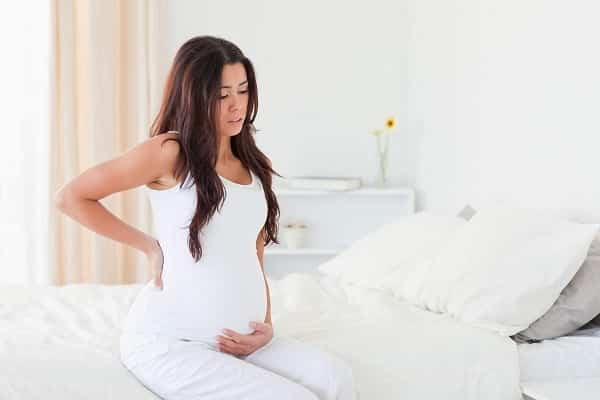
ICD is treated in pregnant women with decoctions and tinctures of medicinal herbs
Struvite and urate in urine
Urates are sodium and potassium salts. Such substances precipitate due to too slow formation of urine and increased acidity. In rare cases, such salts form coral stones, which are hazardous to health. Unlike other neoplasms, such deposits accumulate not only in the kidneys, but also in other organs of the urinary system.
One type of phosphate is struvite. An increase in the concentration of such salts is caused by the development of infectious diseases. Bacteria in urine contribute to the formation of sediment during an alkaline reaction. The constituent elements of such sediment are phosphates, carbonates, magnesium and ammonium. In this case, the formation of stones cannot be ruled out.
Symptoms
The condition is accompanied by aching pain in the lower back, which can radiate to the stomach and pelvis. Since phosphate stones have a smooth surface and tend to grow, they are what are called coral stones. They often cause the entire kidney to be removed.
With large formations, patients may have a fever, itching and burning when urinating. Urinary retention or, conversely, frequent urges are possible. To clarify the diagnosis, the doctor will prescribe a urine test (allows you to determine the salt and alkali content, identifies the infectious process), a general blood test and an x-ray.
Diet
The required diet depends entirely on the therapeutic procedures that the doctor will select after establishing the cause of the increased concentration of salts in the urine. For example, in the case of simple dehydration, you need to drink more different drinks - preference should be given to mineral waters, compotes, fruit drinks and fruit juices. The minimum volume of liquid that is recommended to be consumed during the day is two liters.
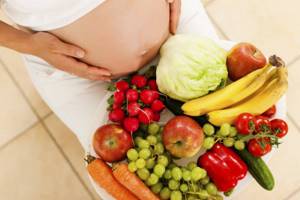
It would be a good idea to limit your intake of foods rich in oxalic acid. These products include: sorrel, celery, parsley, chocolate, as well as other vegetables and fruits. But food in which the concentration of such acids is minimal or completely absent can be eaten without problems. These products include, for example, mushrooms, cauliflower, and cucumbers. In any case, eating watermelon during the current pregnancy can also have a beneficial effect on the body, since this berry contains a huge amount of liquid.
The expectant mother is advised to refrain from eating spicy, fatty, and salty foods. The diet should be balanced, and for best results, consult a nutritionist. At the same time, do not follow any diet aimed at cleansing the body of salts for more than two months.
Prevention
If you have problems with the urinary system and the presence of elevated levels of oxolates, the following products should be limited in the menu:
- berries with a high acid content (plum, currant, strawberry, cherry);
- beans;
- coffee;
- tea;
- sorrel,
- bell pepper;
- parsley;
- potato;
- beet;
- onion;
- eggs.
Depending on the individual characteristics of the body, a pregnant woman should exclude broths from fatty meats, poultry or fish.
If there are increased crystals in the urine during pregnancy, then it is necessary to help the body remove them as soon as possible, and the following will help to cope with this:
- cereals;
- fermented milk products;
- watermelons;
- unsweetened compotes;
- drinking purified water.
It is highly not recommended to use special diuretics during pregnancy.
It is also recommended to limit salt intake, as it “binds” water in the body and prevents the excretion of oxolates from the kidneys.
Before taking folk diuretics, you need to consult a specialist and determine the absence of allergic reactions.
Preventive measures should not harm the health of the mother and child, so you must follow the instructions of the gynecologist and nutritionist.
Author: Maxim Dmitrievich, obstetrician-gynecologist Specially for the site kakrodit.ru
Preventive actions
First of all, girls who want to have a child are advised to closely monitor their health, wisely plan their daily diet and give up bad habits, since all these factors negatively affect both the health of the expectant mother and the condition of her baby during pregnancy and after birth.
In cases where the age of the expectant mother exceeds 30 years, prevention is especially important. It would be useful to contact the clinic for additional examination at the stage of pregnancy planning. It is recommended to take vitamin complexes aimed at correcting the salt balance.
Types of diagnostics
Diagnostic measures are aimed at the need to promptly detect the cause of the disease and first get rid of it, simultaneously removing its negative impact on the mother’s body.
The first symptoms of pathology are detected in the results of a general urine test. They are manifested in increased protein content, reflected in the results of the study.
The following procedures are prescribed as additional diagnostic measures:
- biochemistry of urine;
- general and biochemical blood test;
- Ultrasound.
As treatment progresses, follow-up studies are prescribed. They are necessary so that the doctor can see the response of the woman’s body to the therapy and determine the extent of the effect of the drugs on the child.
The main thing is to identify the cause and take timely measures to eliminate it in order to protect mother and baby from various health problems.
